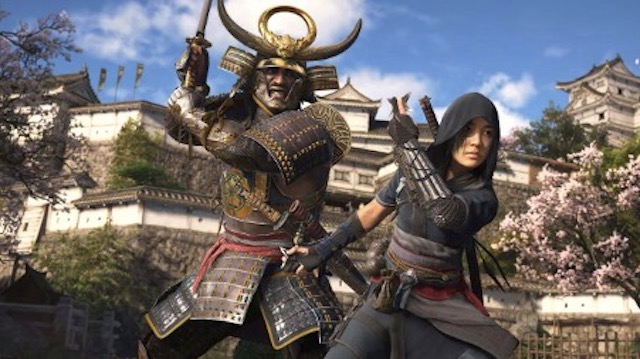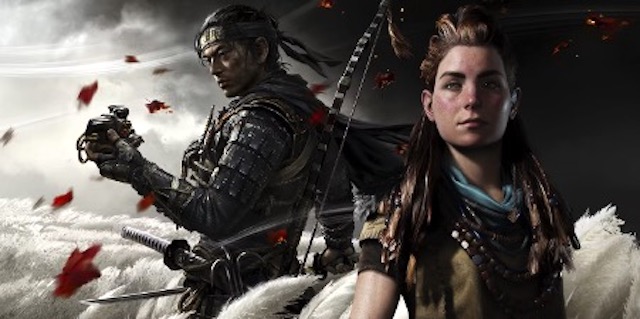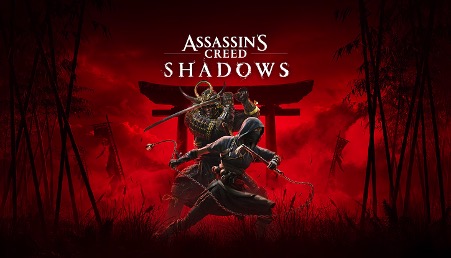Can a Black Samurai rewrite history—or just gamer expectations? This question arises after Ubisoft’s announcement of Assassin’s Creed Shadow earlier this year. While fans worldwide were thrilled to hear about the newest game in the beloved series, the choice of a Black male main character with a Japanese samurai setting ignited a heated debate.
Before delving into the controversy, it’s essential to establish some context. To fully understand the discourse, we need to look at two critical aspects: Ubisoft and its iconic Assassin’s Creed Series and the principles of DEI—Diversity, Equity, and Inclusion—that have increasingly shaped creative industries.
Ubisoft

Ubisoft Entertainment SA, established in 1986, is headquartered in Saint-Mandé, France, with numerous development studios worldwid, Ubisoft is renowned for creating and distributing popular games such as Assassin’s Creed, Just Dance, Watch Dogs and more.
Ubisoft reported revenues of €2.3 billion (A$3.8 billion) and a net income of €157.9 million (A$260.5 million) for 2024, reflecting the company’s strong financial performance.
Among Ubisoft’s “creative” properties, the Assassin’s Creed series stands out for its immersive gaming experiences, praised for blending historical accuracy with engaging storytelling. Titles like Assassin’s Creed Unity, set during the French Revolution, and Assassin’s Creed Origins, which explores ancient Egypt, have sparked widespread interest and earned compliments from global audiences.
DEI
Diversity, Equity, and Inclusion (DEI) is a framework that originated from movements advocating for civil rights and social justice, particularly in the United States during the mid-20th century. Over time, it evolved into a comprehensive strategy adopted by organisations and industries worldwide to foster fairness, representation, and inclusion in workplaces, media, and society.
In the entertainment industry, DEI plays a critical role in shaping narratives, characters, and stories to reflect the complexity and richness of real-world experiences. Its goal is not only to entertain but also to educate and inspire, breaking stereotypes and challenging societal norms.
It sounds like an engaging and forward-thinking initiative, doesn’t it? I think so too. However, the real challenge lies in how we can integrate DEI principles into creative industries like gaming while maintaining cultural understanding and accuracy.
Assassin’s Creed: Shadow

On May 16, 2024, the gaming and entertainment news site Dexerto tweeted an image as a teaser to Assassin’s Creed Shadows, featuring one of its main characters, the Black samurai Yasuke, with an East Asian woman standing next to him. The controversy sparked as discussions about historical accuracy and cultural representation emerged.
Critics questioned whether it was accurate to show Yasuke as a samurai, as there was no accurate historical evidence of his role in ancient Japan. Individuals opposed to the game attempt to challenge Yasuke’s historical status as a samurai in Yasuke’s Wikipedia page.
Further complicating the issue, several reports accused British historian Thomas Lockley of editing Yasuke’s Wikipedia page to support narratives aligning with the game’s perspective and his publications.
Then, a Japanese petition launched in June 2024, which amassed nearly 100,000 signatures within a month, calling for the game’s cancellation due to historical inaccuracies and cultural insensitivity. The controversy even reached the Japanese government, with concerns about cultural appropriation and misrepresentation being raised.
While most debates focus on the accuracy of Yasuke’s historical evidence, I think the main issue isn’t the historical accuracy of a Black samurai but rather the heavy-handed way DEI perspectives are being integrated into the art and creative industries————The way they insist on choosing a black character rather than thousands of other East Asian historical figures. This approach often can lead to accusations of cultural appropriation rather than cultural appreciation.
Portraying Japanese history from solely a Global North perspective

Choosing a Black male as one of the main characters shows a bigger issue: social discussions and mainstream media are still largely dominated by Western (Global North) ideas. While promoting Diversity, Equity, and Inclusion (DEI) is a good approach, the problem is that Western storytelling often assumes it can speak for everyone’s experiences. This is what Carilli (2021) calls the “master narrative,” where one perspective dominates over others.
This leads to a situation where stories and histories may changed in ways that seem fair and diverse from a Western view but end up offending or challenging the identities and dignity of existing cultures. It allows outsiders to define a culture instead of letting cultures define themselves.
As a big name in the creative industry, Ubisoft has the power to influence stories on a global level. Even though they aim to include and represent marginalised groups, their efforts often reflect their own Western ideas. In the end, Ubisoft may unintentionally promote cultural misrepresentation while trying to promote diversity.
This kind of storytelling also reinforces the idea that Western voices are the final authority on what counts as “authentic” or “acceptable” representation. This doesn’t just harm the communities being represented but also weakens the purpose of DEI. Instead of bringing people together, these efforts can cause division and mistrust, making DEI feel like it focuses on “their version” of “diversity” rather than working together to truly celebrate it.
In the end, Ubisoft’s role as a global creative leader is not just about entertaining but also about respecting the cultures they take inspiration from. If they fail to do this, they risk not only offending their audience but also making DEI seem like a meaningless gesture instead of real change. By working openly with cultural experts and doing proper research, Ubisoft can create stories that feel real and reflect the values they stand for.
What are some good examples of DEI games?

In contrast, games such as Ghost of Tsushima have demonstrated a commendable approach to respecting Japanese culture and history. Developed by Sucker Punch Productions—An American-owned company, the creators invested significant effort in ensuring historical accuracy and cultural authenticity. This included consulting Japanese historians, employing cultural advisors, and visiting Japan.
Such dedication to authenticity not only enhances the gaming experience but also helps global audiences gain a deeper appreciation and understanding of Japanese history and culture. Ghost of Tsushima sets a strong example of how DEI principles can be applied while respecting and accurately representing cultures. It stands in contrast to the challenges faced by Assassin’s Creed: Shadow, offering a valuable lesson in integrating diversity and authenticity into storytelling.
While Ghost of Tsushima still follows a more traditional narrative centred on a male samurai in ancient Japan, which some might argue lacks diversity due to a masculinity, and male presentation, games like the Horizon series show how DEI principles and cultural authenticity can be effectively combined without compromising creativity.
Developed by Sony Interactive Entertainment, the Horizon series provides a great example of integrating DEI into a rich and immersive story. It features Aloy, a strong, resourceful female main character who identifies as a lesbian, navigating a post-apocalyptic world where humans coexist with robotic creatures resembling wildlife. The game explores themes like survival, self-discovery, and resilience, creating a deeply personal and engaging experience for players.
Horizon avoids controversies about historical accuracy or cultural appropriation by using a fictional character and setting. It builds a world where diverse representation feels natural and authentic, without misrepresenting real cultures or histories. This approach also allows the game to address modern social issues, such as gender equality and LGBTQ+ representation, in a way that feels relevant and impactful, while resonating with a wide range of players.
These examples show how the gaming industry can embrace diversity and inclusivity in a way that feels meaningful and genuine. Instead of tokenising characters or forcing representation, games like Horizon prove that DEI can be seamlessly integrated into storytelling, making the gaming experience more enjoyable and enriching for players around the world.


